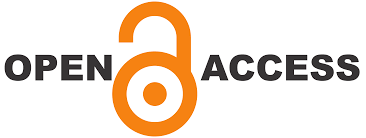Transformative of Problem-Based Learning Model to Enhance Learning Outcomes of Muhammadiyah High School Students
Keywords:
Problem-Based Learning, Transformative Learning, Learning Outcomes, Muhammadiyah High School, Society 5.0Abstract
This study examines the transformative application of the Problem-Based Learning (PBL) model to improve learning outcomes of Muhammadiyah high school students. The research responds to the demand for developing critical thinking, problem-solving skills, and conceptual understanding in line with the Muhammadiyah educational mission. Using a quasi-experimental design with a pretest–posttest control group, participants were drawn from selected Muhammadiyah high schools in Jember. Data were collected through achievement tests, classroom observations, and student reflections. Findings indicate that students taught with the transformative PBL approach achieved significantly higher learning outcomes than those in traditional instruction. This improvement was linked to active participation, collaborative group work, and contextual problem scenarios that connect lessons to real-life situations. The integration of transformative elements, such as character building, reflective practice, and digital learning support, further strengthened cognitive mastery and Islamic values. The study concludes that transformative PBL offers a viable instructional strategy to enhance both academic performance and character development, supporting Muhammadiyah's vision in the era of Society 5.0.
Downloads
References
Abdulah, A., Mustadi, A., & Fitriani, W. (2021). PBL-Based Interactive Multimedia in Improving Critical Thinking Skills. JPI (Jurnal Pendidikan Indonesia), 10(1). https://doi.org/10.23887/jpi-undiksha.v10i1.25521
Albrecht, S. L., Green, C. R., & Marty, A. (2021). Meaningful work, job resources, and employee engagement. Sustainability (Switzerland), 13(7). https://doi.org/10.3390/su13074045
Alsowat, H. H. (2022). Hybrid Learning or Virtual Learning? Effects on Students’ Essay Writing and Digital Literacy. Journal of Language Teaching and Research, 13(4). https://doi.org/10.17507/jltr.1304.20
Barman, L., & Kjällander, S. (2022). Playful and Meaningful Learning of Programming. What does it Take to Integrate an App-Based Game Promoting Digital Mathematics into Early Childhood Education? Designs for Learning, 14(1). https://doi.org/10.16993/dfl.203
Bili, S., Suparmi, S., & Sarwanto, S. (2022). Problem-based Learning: Improving Students’ Concept Mastery and Learning Activities. Journal of Educational Science and Technology (EST), 8(1). https://doi.org/10.26858/est.v8i1.21970
Brown, A., Lawrence, J., Basson, M., & Redmond, P. (2022). A conceptual framework to enhance student online learning and engagement in higher education. Higher Education Research and Development, 41(2). https://doi.org/10.1080/07294360.2020.1860912
Cresencio, M. (2023). Outcome-based education in open and distance learning. Journal of Education and E-Learning Research, 10(4). https://doi.org/10.20448/jeelr.v10i4.5043
Dinelti Fitria, Lufri, Ali Imran, & Yuni Ahda. (2022). Studi Literature Model Problem Based Learning. International Journal Of Humanities Education and Social Sciences (IJHESS), 1(6). https://doi.org/10.55227/ijhess.v1i6.177
Doan, T. T. T., Nguyen, L. C. T., & Nguyen, T. D. N. (2020). Emotional intelligence and project success: The roles of transformational leadership and organizational commitment. Journal of Asian Finance, Economics and Business, 7(3). https://doi.org/10.13106/jafeb.2020.vol7.no3.223
Duckworth, A. L., Taxer, J. L., Eskreis-Winkler, L., Galla, B. M., & Gross, J. J. (2019). Self-Control and Academic Achievement. In Annual Review of Psychology (Vol. 70, pp. 373–399). Annual Reviews Inc. https://doi.org/10.1146/annurev-psych-010418-103230
Fatqurhohman, F. (2021). Characteristics of Students in Resolving Word Problems Based on Gender. Journal of Education and Learning Mathematics Research (JELMaR), 2(1), 1–10. https://doi.org/10.37303/jelmar.v2i1.42
Frenanto, A., Fatqurhohman, F., & Rhomdani, R. W. (2023). Identification of HOTS Problem Solving Ability of High School Students Using Two Tier Diagnostic. Journal of Education and Learning Mathematics Research (JELMaR), 4(2), 120–126. https://doi.org/10.37303/jelmar.v4i2.115
Harahap, N. J., Limbong, C. H., & Sinaga Simanjorang, E. F. (2023). The Education in Era Society 5.0. Jurnal Eduscience, 10(1). https://doi.org/10.36987/jes.v10i1.3959
Hasanah, Z., Ritonga, S., Ikhsan, Z., & Suarni, S. (2021). The Implementation of Problem Based Learning Integrated with STEM-Based Worksheets to Improve Learning Motivation. Asian Journal of Science Education, 3(2). https://doi.org/10.24815/ajse.v3i2.19745
Hendarwati, E., Nurlaela, L., & Bachri, B. S. (2021). The collaborative problems based learning model innovation. Journal of Educational and Social Research, 11(4). https://doi.org/10.36941/jesr-2021-0080
Henry, A., & Thorsen, C. (2021). Teachers’ self-disclosures and influences on students’ motivation: A relational perspective. International Journal of Bilingual Education and Bilingualism, 24(1). https://doi.org/10.1080/13670050.2018.1441261
Honglin, L., & Yifan, N. (2022). The Construction of Project-Based Learning Model Based on Design Thinking. Proceedings - 2022 4th International Conference on Computer Science and Technologies in Education, CSTE 2022. https://doi.org/10.1109/CSTE55932.2022.00038
Ismayati, I., Ratnaningsih, N., & Supratman, S. (2020). Students’ Metacognition and Self-Regulated Learning: An Analysis Through Students’ Work in Solving HOTS Problem. JETL (Journal Of Education, Teaching and Learning), 5(1). https://doi.org/10.26737/jetl.v5i1.1328
Jia, L., Jalaludin, N. A., & Rasul, M. S. (2023). Design Thinking and Project-Based Learning (DT-PBL): A Review of the Literature. International Journal of Learning, Teaching and Educational Research, 22(8). https://doi.org/10.26803/ijlter.22.8.20
Jumriani, & Prasetyo, Z. K. (2022). Important Roles of Local Potency Based Science Learning to Support the 21 st Century Learning. European Journal of Formal Sciences and Engineering, 5(1). https://doi.org/10.26417/ejef.v1i1.p6-16
Kaliraj, P., Singaravelu, G., & Devi, T. (2024). Transformative Digital Technology for Disruptive Teaching and Learning. In Transformative Digital Technology for Disruptive Teaching and Learning. https://doi.org/10.1201/9781032675176
Katawazai, R. (2021). Implementing outcome-based education and student-centered learning in Afghan public universities: the current practices and challenges. Heliyon, 7(5). https://doi.org/10.1016/j.heliyon.2021.e07076
Lai, F. Y., Tang, H. C., Lu, S. C., Lee, Y. C., & Lin, C. C. (2020). Transformational Leadership and Job Performance: The Mediating Role of Work Engagement. SAGE Open, 10(1). https://doi.org/10.1177/2158244019899085
Lasaiba, M. A., & Lasaiba, D. (2023). Enhancing Process Skills and Learning Outcomes: A Comparative Study of the Treffinger Learning Model. Journal of Innovative Science Education, 12(2). https://doi.org/10.15294/jise.v12i2.64723
Lu, G., Xie, K., & Liu, Q. (2022). What influences student situational engagement in smart classrooms: Perception of the learning environment and students’ motivation. British Journal of Educational Technology, 53(6). https://doi.org/10.1111/bjet.13204
Mansur, H., Utama, A. H., Mohd Yasin, M. H., Sari, N. P., Jamaludin, K. A., & Pinandhita, F. (2023). Development of Inclusive Education Learning Design in the Era of Society 5.0. Social Sciences, 12(1). https://doi.org/10.3390/socsci12010035
Mayasari, A., Arifudin, O., & Juliawati, E. (2022). Implementasi Model Problem Based Learning ( PBL). Jurnal Tahsinia, 3(2).
Nguyen, N. (2021). The Fearless Organization: Creating Psychological Safety in the Workplace for Learning, Innovation, and Growth. In Learning Organization (Vol. 28, Issue 3). https://doi.org/10.1108/TLO-04-2021-266
Pratama, A. D., Fatqurhohman, F., & Hasanah, F. D. A. (2025). Meningkatkan Komunikasi Matematis Dengan PBL Berbantuan Matcha Math Card Pada Materi Fungsi Kuadrat Siswa X SMA. SCIENCE : Jurnal Inovasi Pendidikan Matematika Dan IPA, 5(2), 546–560. https://jurnalp4i.com/index.php/science
Rochmawati, A., Wiyanto, & Ridlo, S. (2020). Analysis of 21 st century skills of student on implementation project based learning and problem posing models in science learning. Journal of Primary Education, 9(1).
Salam, A. U. A., Komarayanti, S., & Sita Warsita, K. (2023). The Use of Website-Based PBL Model to Improve the Interest and Motivation in Learning Class X Students. International Social Sciences and Humanities, 2(2). https://doi.org/10.32528/issh.v2i2.253
Sihombing, Y., Haloho, B., & Napitu, U. (2023). Problematika Guru Dalam Pemanfaatan Media Pembelajaran. JUPE : Jurnal Pendidikan Mandala, 8(2). https://doi.org/10.58258/jupe.v8i2.5611
Sparfeldt, J. R., & Schwabe, S. (2024). Academic procrastination mediates the relation between conscientiousness and academic achievement. Personality and Individual Differences, 218. https://doi.org/10.1016/j.paid.2023.112466
Suh, A., Cheung, C. M. K., & Lin, Y. (2022). Meaningful engagement with a gamified knowledge management system: theoretical conceptualization and empirical validation. Industrial Management and Data Systems, 122(5). https://doi.org/10.1108/IMDS-07-2021-0454
Syatriana, E., & Erwin, A. (2021). Investigating learning outcome based on a model of English teaching of Indonesian elementary students. JEES (Journal of English Educators Society), 6(2). https://doi.org/10.21070/jees.v6i2.1110
Tanjung, S., Baharuddin, Ampera, D., Farihah, & Jahidin, I. (2022). Problem Based Learning (PBL) Model with Technological, Pedagogical, and Content Knowledge (TPACK) Approach. International Journal of Education in Mathematics, Science and Technology, 10(3). https://doi.org/10.46328/ijemst.2510
Wangid, M. N., Putra, C. A., & Rudyanto, H. E. (2021). The Science-Math Stories Based on Digital Learning: Digital Literacy Innovation in Increasing Ability to Solve Problems. International Journal of Emerging Technologies in Learning, 16(9). https://doi.org/10.3991/ijet.v16i09.22039
Wijnia, L., & Baars, M. (2021). The role of motivational profiles in learning problem-solving and self-assessment skills with video modeling examples. Instructional Science, 49(1). https://doi.org/10.1007/s11251-020-09531-4
Yu, Z. (2023). Learning Outcomes, Motivation, and Satisfaction in Gamified English Vocabulary Learning. SAGE Open, 13(2). https://doi.org/10.1177/21582440231158332
Yunlang, X., Zhile, Y., Xiaoping, L., Huazhou, K., & Xiaofeng, Y. (2020). Dynamic Opposite Learning Enhanced Teaching and Learning Based Optimization. Knowledge-Based Systems, 188. https://doi.org/10.1016/j.knosys.2019.104966
Zaka, P. (2023). Meaningful learning with technology. Journal of Open, Flexible and Distance Learning, 16(2). https://doi.org/10.61468/jofdl.v16i2.190
Downloads
Published
Data Availability Statement
All data generated or analyzed during this study are included in this published article. Additional datasets are available from the corresponding author upon reasonable request.
Issue
Section
License
Copyright (c) 2025 Nia Anggraeni, Irfan Kholid Sofhan (Author)

This work is licensed under a Creative Commons Attribution-ShareAlike 4.0 International License.













